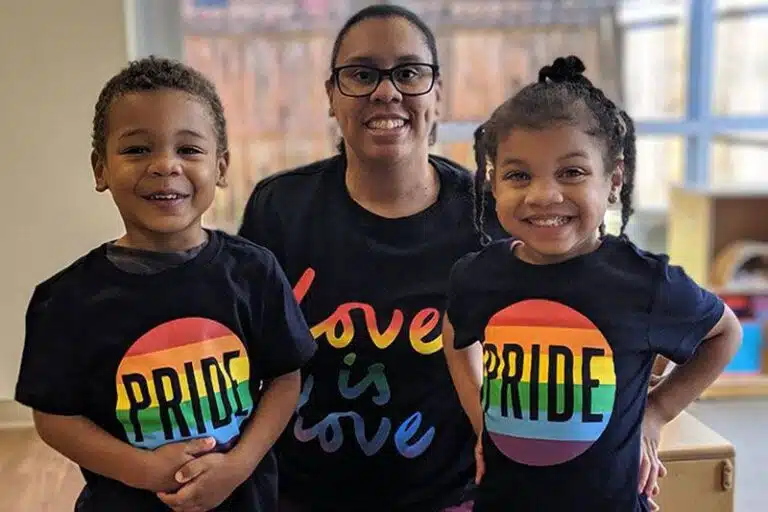Child protection is at the heart of every organisation working with children and young people. Whether you’re a teacher, nursery manager, youth worker, or healthcare professional, Level 3 Safeguarding Children training is the advanced qualification that equips you to lead safeguarding efforts effectively. This CPD-accredited course goes beyond basic awareness, diving deep into the practical skills and knowledge needed to identify risks, respond to concerns, and foster a culture of safety.
At Skilltopia, our Level 3 Safeguarding Children course—priced at just £30 + VAT—has empowered over 867 professionals to meet statutory requirements under Keeping Children Safe in Education (KCSIE 2023) and Working Together to Safeguard Children (2023). Delivered fully online in approximately 3 hours, it includes RoSPA-assured content, instant certificates, and flexible access on any device. In this guide, we’ll explore the key modules, what you’ll learn in each, and how this training transforms your safeguarding practice.

Why Level 3 Safeguarding Children Training Matters
Level 3 training is designed for Designated Safeguarding Leads (DSLs) and Officers (DSOs) who manage child protection at a leadership level. Unlike Level 1 (awareness) or Level 2 (response), Level 3 emphasises strategic oversight, multi-agency collaboration, and compliance with UK legislation.
According to the Department for Education, DSLs must receive this level of training upon appointment, with refreshers every two years. It covers everything from recognising abuse to auditing policies, ensuring you’re prepared for Ofsted inspections or serious case reviews. Our Skilltopia course stands out with its practical scenarios, audio narration, and unlimited exam attempts—perfect for busy professionals.
Now, let’s break down the core modules and the essential skills you’ll gain.
Module 1: Legislation and Statutory Guidance
What You’ll Learn: This foundational module demystifies the legal landscape of safeguarding. You’ll explore key frameworks that shape your role, including:
- Children Act 1989 and 2004: Core principles of parental responsibility and local authority duties.
- Working Together to Safeguard Children (2023): Multi-agency protocols for preventing harm.
- Keeping Children Safe in Education (KCSIE 2023): Specific guidance for educational settings, including online safety and peer-on-peer abuse.
- Prevent Duty: Identifying and addressing radicalisation risks under the Counter-Terrorism and Security Act 2015.
Key Skills Gained:
- Interpreting legislation to inform policy development.
- Understanding your statutory obligations as a DSL/DSO.
- Applying guidance to real-world scenarios, like mandatory reporting.
By the end, you’ll confidently reference these documents during audits or training sessions, ensuring your organisation stays compliant.
Module 2: Types of Abuse, Neglect, and Exploitation
What You’ll Learn: Beyond bruises and broken bones, this module uncovers the subtle signs of harm. It covers:
- Physical, Emotional, and Sexual Abuse: Indicators like unexplained injuries or behavioural changes.
- Neglect: Spotting chronic issues like poor hygiene or inadequate supervision.
- Exploitation: Online grooming, child criminal exploitation (CCE), and county lines.
- Vulnerabilities: How disability, cultural factors, or adverse childhood experiences (ACEs) increase risks.
Interactive case studies highlight barriers to disclosure, such as fear or grooming tactics.
Key Skills Gained:
- Early identification of subtle red flags.
- Differentiating between types of harm for targeted responses.
- Empathy-building techniques to encourage safe disclosures.
Learners like Emma, a Bristol nursery manager, report: “This module opened my eyes to neglect in everyday settings—now I spot concerns faster.”
Module 3: Raising and Managing Safeguarding Concerns
What You’ll Learn: Turning awareness into action, this module guides you through the initial response:
- Levels of Need Framework: From universal services to child protection plans.
- Responding to Disclosures: Using the CALM acronym (Calm, Ask, Listen, Manage).
- Recording Concerns: Best practices for accurate, objective documentation using tools like chronologies.
It addresses common dilemmas, like balancing confidentiality with the child’s best interests.
Key Skills Gained:
- Structured decision-making for immediate risks.
- Professional recording to support investigations.
- De-escalation techniques for emotional situations.
Module 4: The Referral Process
What You’ll Learn: Referrals are the lifeline of safeguarding. This module details:
- Early Help Assessments: For families needing support before crisis.
- Child in Need and Protection Referrals: When and how to contact children’s social care.
- Specialist Pathways: Prevent referrals for radicalisation, LADO for staff allegations, and DBS for vetting.
You’ll practice drafting referrals with the right detail—names, timelines, and evidence.
Key Skills Gained:
- Timely, effective referrals that trigger appropriate support.
- Escalation protocols if initial responses fall short.
- Collaboration with agencies like police or health services.
Module 5: Multi-Agency Working and Information Sharing
What You’ll Learn: Safeguarding is a team effort. This module covers:
- Information Sharing Principles: GDPR-compliant exchange under the Data Protection Act 2018.
- Escalation Processes: Resolving disagreements with partners.
- Record-Keeping Best Practices: Secure, auditable systems for long-term tracking.
Real-world examples illustrate successful collaborations in complex cases.
Key Skills Gained:
- Building trust-based partnerships.
- Ethical data handling to protect privacy.
- Conflict resolution for smoother multi-agency dynamics.
Module 6: Safer Recruitment and Managing Allegations
What You’ll Learn: Prevention starts with people. Explore:
- DBS Checks and Vetting: Enhanced, barred list, and overseas requirements.
- Safer Recruitment Panels: Interview techniques and reference checks.
- Allegations Against Staff: LADO referrals, suspension protocols, and whistleblowing.
It includes strategies for maintaining trust during investigations.
Key Skills Gained:
- Robust hiring processes to minimise risks.
- Fair, confidential handling of allegations.
- Policy updates based on lessons learned.
Module 7: The Leadership Role of the Designated Safeguarding Lead
What You’ll Learn: As a DSL/DSO, you’re a leader. This module focuses on:
- Staff Training and Supervision: Delivering in-house sessions and performance reviews.
- Policy Development and Audits: Creating tailored safeguarding plans.
- Inspection Preparation: Responding to Ofsted or Care Quality Commission (CQC) queries.
It emphasises embedding safeguarding into organisational culture.
Key Skills Gained:
- Strategic oversight for whole-organisation compliance.
- Audit tools for continuous improvement.
- Advocacy for resources and awareness.
Module 8: Case Studies and Professional Judgement
What You’ll Learn: Theory in action. Analyse anonymised cases like:
- A disclosure of sexual abuse in a school.
- Neglect in a family support setting.
- Online exploitation via social media.
Reflect on decisions and alternatives.
Key Skills Gained:
- Applying modules to real scenarios.
- Ethical judgement under pressure.
- Reflective practice for personal growth.
Module 9: Safeguarding in Complex and Emergency Situations
What You’ll Learn: For high-stakes moments:
- Immediate Danger Protocols: Calling emergency services.
- Missing Children: National procedures and risk assessments.
- Serious Case Reviews: Learning from tragedies like Baby P.
Key Skills Gained:
- Crisis response without panic.
- Post-incident analysis for prevention.
Module 10: Safeguarding in Education Settings
What You’ll Learn: Tailored for schools:
- Peer-on-Peer Abuse: Sexual violence and harassment policies.
- Curriculum Integration: Teaching British values and online safety.
- Parental Engagement: Communication strategies.
Key Skills Gained:
- Age-appropriate education delivery.
- Balancing child rights with protection.
The Benefits of Completing Level 3 Safeguarding Children Training
Beyond modules, you’ll gain:
- Compliance: Meet EYFS, KCSIE, and Ofsted standards.
- Confidence: Handle disclosures with poise.
- Career Boost: CPD points for progression to senior roles.
- Organisational Impact: Reduce risks and enhance reputation.
Our course’s bulk discounts (up to 40% off) make team training affordable.
Frequently Asked Questions (FAQs)
What makes Level 3 Safeguarding Children different from lower levels?
Level 3 focuses on leadership and strategy, ideal for DSLs/DSOs, while Levels 1-2 cover basics.
How long is the training?
Approximately 3 hours, fully flexible online.
Is a certificate included?
Yes—instant CPD-accredited digital certificate, with printed options next day.
Do I need prior experience?
Recommended but not required; suitable for new appointees.
Can I study on mobile?
Yes—responsive design for all devices.
Master Level 3 Safeguarding Children with Skilltopia
Ready to lead child protection? Our Level 3 Safeguarding Children course delivers comprehensive modules for £30 + VAT, with instant access and certification.
Enrol in Level 3 Safeguarding Children Training Today and safeguard the future.
Sources: DfE (KCSIE 2023), HM Government (Working Together 2023), NSPCC. Reviewed by Skilltopia experts.


